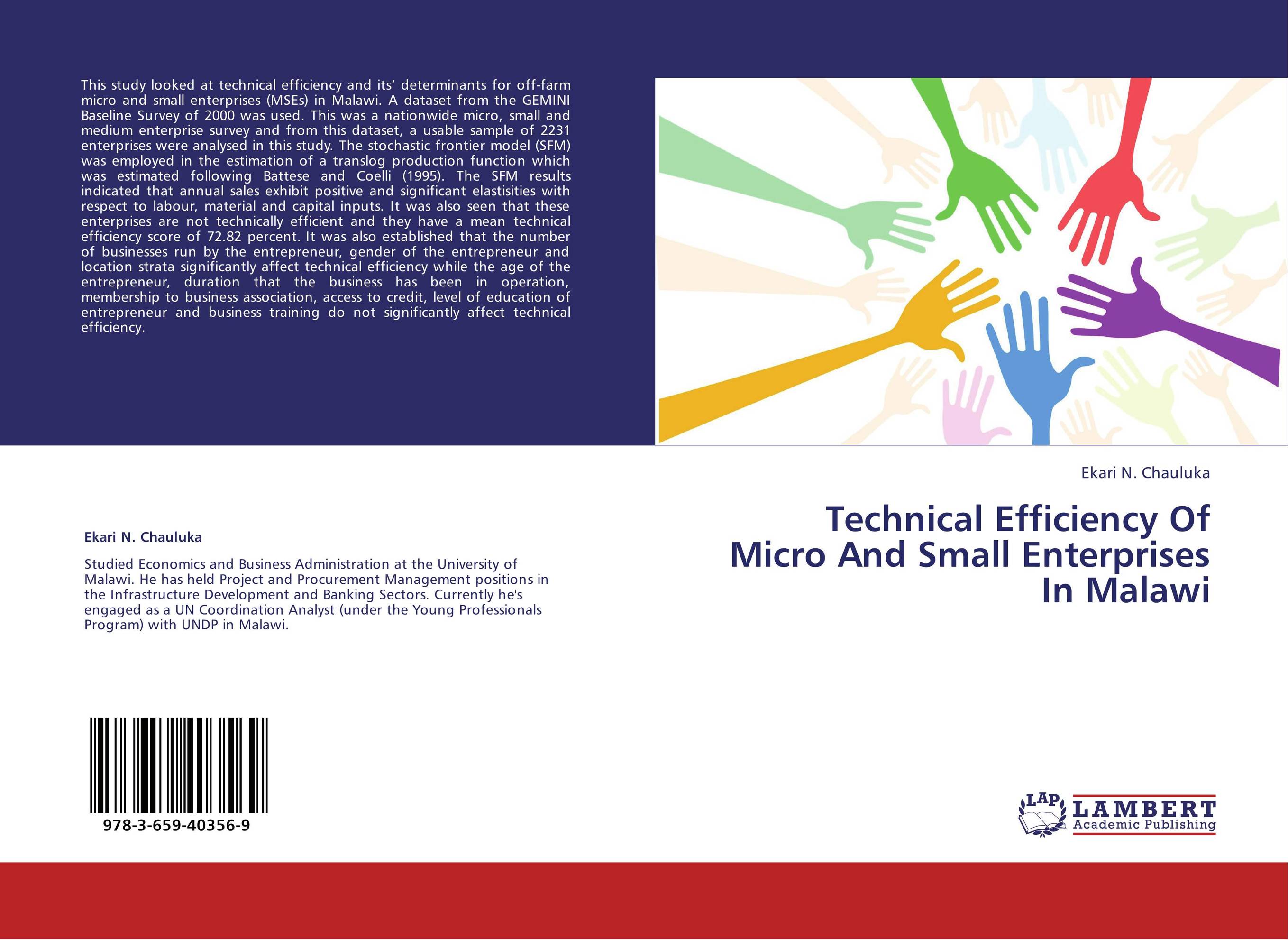| Поиск по каталогу |
|
(строгое соответствие)
|
- Профессиональная
- Научно-популярная
- Художественная
- Публицистика
- Детская
- Искусство
- Хобби, семья, дом
- Спорт
- Путеводители
- Блокноты, тетради, открытки
Technical Efficiency of Micro and Small Enterprises in Malawi.

В наличии
| Местонахождение: Алматы | Состояние экземпляра: новый |

Бумажная
версия
версия
Автор: Ekari N. Chauluka
ISBN: 9783659403569
Год издания: 2013
Формат книги: 60×90/16 (145×215 мм)
Количество страниц: 88
Издательство: LAP LAMBERT Academic Publishing
Цена: 33902 тг
Положить в корзину
| Способы доставки в город Алматы * комплектация (срок до отгрузки) не более 2 рабочих дней |
| Самовывоз из города Алматы (пункты самовывоза партнёра CDEK) |
| Курьерская доставка CDEK из города Москва |
| Доставка Почтой России из города Москва |
Аннотация: This study looked at technical efficiency and its’ determinants for off-farm micro and small enterprises (MSEs) in Malawi. A dataset from the GEMINI Baseline Survey of 2000 was used. This was a nationwide micro, small and medium enterprise survey and from this dataset, a usable sample of 2231 enterprises were analysed in this study. The stochastic frontier model (SFM) was employed in the estimation of a translog production function which was estimated following Battese and Coelli (1995). The SFM results indicated that annual sales exhibit positive and significant elastisities with respect to labour, material and capital inputs. It was also seen that these enterprises are not technically efficient and they have a mean technical efficiency score of 72.82 percent. It was also established that the number of businesses run by the entrepreneur, gender of the entrepreneur and location strata significantly affect technical efficiency while the age of the entrepreneur, duration that the business has been in operation, membership to business association, access to credit, level of education of entrepreneur and business training do not significantly affect technical efficiency.
Ключевые слова: Malawi, Technical Efficiency, micro and small enterprises, stochastic frontier model



